Fleurs du Mal Magazine


Or see the index
The armed conflict in the east of Ukraine in 2017 brought about an emergence of a distinctive trend in contemporary Ukrainian poetry: the poetry of war.
 Directly and indirectly, the poems collected in this volume engage with the events and experiences of war, reflecting on the themes of alienation, loss, dislocation, and disability; as well as justice, heroism, courage, resilience, generosity, and forgiveness.
Directly and indirectly, the poems collected in this volume engage with the events and experiences of war, reflecting on the themes of alienation, loss, dislocation, and disability; as well as justice, heroism, courage, resilience, generosity, and forgiveness.
In addressing these themes, the poems also raise questions about art, politics, citizenship, and moral responsibility. The anthology brings together some of the most compelling poetic voices from different regions of Ukraine. Young and old, female and male, somber and ironic, tragic and playful, filled with extraordinary terror and ordinary human delights, the voices recreate the human sounds of war in its tragic complexity.
Oksana Maksymchuk is an author of two award-winning books of poetry in the Ukrainian language, and a recipient of Richmond Lattimore and Joseph Brodsky-Stephen Spender translation prizes. She works on problems of cognition and motivation in Plato’s moral psychology. Maksymchuk teaches philosophy at the University of Arkansas.
Max Rosochinsky is a poet and translator from Simferopol, Crimea. His poems had been nominated for the PEN International New Voices Award in 2015. With Maksymchuk, he won first place in the 2014 Brodsky-Spender competition. His academic work focuses on twentieth century Russian poetry, especially Osip Mandelshtam and Marina Tsvetaeva.
Published by Academic Studies Press (Boston, MA) and Harvard Ukrainian Research Institute (Cambridge, MA), Words for War: New Poems from Ukraine is available in hardback, paperback, and digital ebook formats.
New Poems from Ukraine by:
Anastasia Afanasieva
Vasyl Holoborodko
Borys Humenyuk
Yuri Izdryk
Aleksandr Kabanov
Kateryna Kalytko
Lyudmyla Khersonska
Boris Khersonsky
Marianna Kiyanovska
Halyna Kruk
Oksana Lutsyshyna
Vasyl Makhno
Marjana Savka
Ostap Slyvynsky
Lyuba Yakimchuk
Serhiy Zhadan

# new poetry
Words for War: New Poems from Ukraine
Edited by Oksana Maksymchuk & Max Rosochinsky
with an introduction by Ilya Kaminsky and an afterword by Polina Barskova
Publisher: Academic Studies Press
Series: Ukrainian Studies
Pages: 242 pp.
16 illus. (color)
Publication Date: December 2017
English
ISBN: 9781618116666 (cloth) 32,99 euro
ISBN: 9781618118615 (paper) 24,99 euro
More information: https://www.wordsforwar.com/
• fleursdumal.nl magazine
More in: #Modern Poetry Archive, #More Poetry Archives, *War Poetry Archive, - Book News, - Book Stories, Archive Y-Z, REPRESSION OF WRITERS, JOURNALISTS & ARTISTS, WAR & PEACE, Yakimchuk, Lyuba
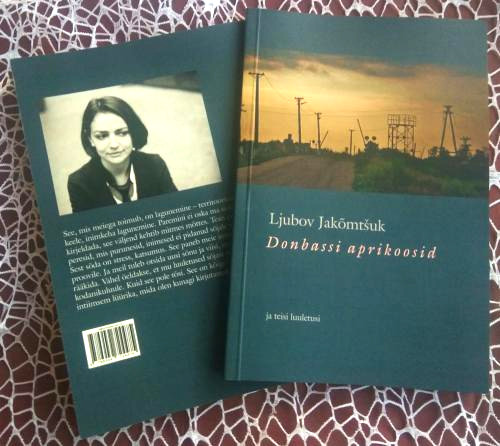
we will walk back, even with bare feet
if we don’t find our home in the place where we left it
we will build another one in an apricot tree
out of luscious clouds, out of azure ether
Apricots of Donbas—by award-winning contemporary Ukrainian poet Lyuba Yakimchuk—is the 7th book in the Lost Horse Press Contemporary Ukrainian Poetry Series. As are previous volumes in the Series, it has been released in a dual-language edition.
Born and raised in a small coal-mining town in Ukraine’s industrial east, Yakimchuk lost her family home in 2014, when the region was occupied by Russian-backed militants, and her parents and sister were forced to flee as refugees.
Reflecting the complex emotional experiences of a civilian witnessing a gradual disintegration of her familiar surroundings, Yakimchuk’s poetry is versatile, ranging from sumptuous verses about the urgency of erotic desire in a war-torn city to imitations of child-like babbling about the tools and toys of military combat.
Playfulness in the face of catastrophe is a distinctive feature of Yakimchuk’s voice, evoking the legacy of the Ukrainian Futurists of the 1920s. The poems’ artfulness goes hand in hand with their authenticity, offering intimate glimpses into the story of a woman affected by a life-altering situation beyond her control.
(…)
my friends are hostages
and I can’t reach them, I can’t do netsk
to pull them out of the basements
from under the rubble
yet here you are, writing poems
ideally slick poems
high-minded gilded poems
beautiful as embroidery
there’s no poetry about war
just decomposition
only letters remain
and they all make a single sound — rrr
(…)
Lyuba Yakimchuk from Decomposition,
translated from the Ukrainian by Oksana Maksymchuk and Max Rosochinsky
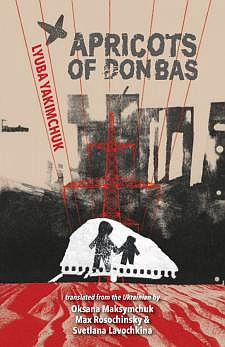 Lyuba Yakimchuk
Lyuba Yakimchuk
is a poet, playwright, and screenwriter. Her two collections of poetry, Moda (2009) and Abrykosy Donbasu (2015) won prestigious awards, including the International Slavic Poetic Award (Ukraine) and the International Poetic Award of the Kovalev Foundation (USA). Since 2019, her play The Wall has been running at the Ivan Franko National Academic Drama Theater, the largest in Ukraine. She also authored the script for the film The Slovo House: An Unfinished Novel, reflecting on the literary life in the 1930’s Kharkiv. Born and raised in a small town near Luhansk, Yakimchuk now lives in Kyiv, Ukraine.
Born and raised in a small coal-mining town in Ukraine’s industrial east, Yakimchuk lost her family home in 2014 when the region was occupied by Russian-backed militants and her parents and sister were forced to flee as refugees. Reflecting her complex emotional experiences, Yakimchuk’s poetry is versatile, ranging from sumptuous verses about the urgency of erotic desire in a war-torn city to imitations of childlike babbling about the tools and toys of military combat. Playfulness in the face of catastrophe is a distinctive feature of Yakimchuk’s voice, evoking the legacy of the Ukrainian Futurists of the 1920s. The poems’ artfulness go hand in hand with their authenticity, offering intimate glimpses into the story of a woman affected by a life-altering situation beyond her control.
# new poetry
APRICOTS OF DONBAS
poems by Lyuba Yakimchuk
Translated by Oksana Maksymchuk,
Max Rosochinsky & Svetlana Lavochkina
Oktober 2021
Paperback
166 pp
ISBN 978-1-7364323-1-0
Lost Horse Press
$30.00
• fleursdumal.nl magazine
More in: #Modern Poetry Archive, - Book News, Archive Y-Z, Archive Y-Z, Art & Literature News, Yakimchuk, Lyuba

And Yet
They drew him from the darkened room,
Where, swooning in a peace profound,
Beneath a heavy fragrance drowned
Her grey form glimmered in the gloom.
Death smoothed from her each sordid trace
Of Life; at last he read the scroll;
For all the meaning of her soul
Flowered upon her perfect face.
“In other worlds her soul finds scope;
Her spirit lives; she is not dead,”
In his dulled ear they said and said,
Suave-murmuring the ancient Hope.
“You loved her; she was worthy love.
Think you her spheral soul can cease?
Nay, she has ripened to release
From this bare earth, and waits above.”
His brain their clamour heard aloof;
He, too, had said the self-same thing;
But now his heart was quivering
For more than comfort — parched for proof.
He put them from him. “Let me be;
You proffer in my bitter need
The coward comfort of a creed
That tears her soul apart from me.
“She waits in no drear Heaven afar.
Her woman’s soul in all its worth,
Yearning for me, for homely earth,
No gates of beaten gold could bar.
“No, she is near me, ever close;
One with the world, but free again;
One with the breezes and the rain;
One with the mountain and the rose.
“She knows me not; her voice is dumb;
But aching through the twilight peers,
And, unremembering, yet with tears,
She strives to say she cannot come.
“Yes, she is changed, but not destroyed;
The words that were her soul are hushed;
The gem that was her heart is crushed —
Its fragments white stars in the void.
“And I shall see her in disguise;
In the grey vistas of the street
A face that hints of her I meet;
Whispers her soul from alien eyes.
“In Time’s great garden, spring on spring,
The blossoms glow; then at a breath
Their petals flutter down to death —
Ah love, how brief your blossoming!
“Death has but severed part from part.
Borne on an ever-moving air
The fragrance of her life somewhere
Freshens some lonely wistful heart!
“No word of hers can God forget;
Her laughter Time dare not disperse;
It shakes the tense-strung universe,
And with the chord it trembles yet.
“Each mood of hers, each fancy slight,
In deep pulsations, ring on ring,
Dilating, ever-widening,
Ripples across the outer night.
“Her life with deathless charm was fraught,
And God with smiles remembers now
The puzzled pucker of her brow
Ruffled with sudden gusts of thought.
“And in His cosmic memory wise
Still live her subtle features thin,
Her dear iconoclastic chin,
The grave enigma of her eyes.
“And if beyond she might draw breath.
And know that I was not with her,
The wistful eyes of her despair
Would be more desolate than death.
“But not to meet her in the wide
Night-spaces I must wander through;
To kiss the pretty pout I knew,
And nevermore to hear her chide;
“To speak those childish words that were
So foolish-sweet, so passionate-wise;
Her subtle fragrance recognise
And hear the whispers of her hair! . . .
“Her sun has set; but still, sublime,
She is a star, of God a part;
She is a petal at the heart
Of the eternal flower of Time.
“I triumph so beyond regret,
I win her immortality:
Where, Death, your vaunted victory?
Where, Grave, your sting? And yet — and yet——!”
Arthur Adams
(1872-1936)
And Yet
• fleursdumal.nl magazine
More in: Adams, Arthur, Archive A-B, Archive A-B

Je n’ai pas oublié,
voisine de la ville
Je n’ai pas oublié, voisine de la ville,
Notre blanche maison, petite mais tranquille;
Sa Pomone de plâtre et sa vieille Vénus
Dans un bosquet chétif cachant leurs membres nus,
Et le soleil, le soir, ruisselant et superbe,
Qui, derrière la vitre où se brisait sa gerbe
Semblait, grand oeil ouvert dans le ciel curieux,
Contempler nos dîners longs et silencieux,
Répandant largement ses beaux reflets de cierge
Sur la nappe frugale et les rideaux de serge.
Charles Baudelaire
(1821 – 1867)
Je n’ai pas oublié, voisine de la ville
Fleurs du mal (Flowers of Evil)
• fleursdumal.nl magazine
More in: Archive A-B, Archive A-B, Baudelaire, Les Fleurs du Mal
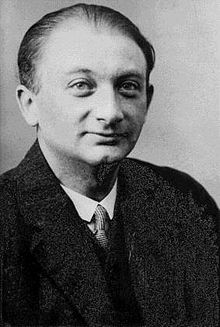
Karneval
Alle Tage feiern wir Karneval,
wir haben es nicht nötig, uns eigens zu maskieren,
weil wir unser eigenes Angesicht verlieren;
wir sind: ein Untertan, ein Sergeant, ein General,
ein deutscher Student mit Bändern und Schmissen,
eine Pickelhaube, ein geschliffenes Bajonett,
ein schleppender Säbel, ein Pastorenbarett,
und eine Prothese, ewig zu hinken beflissen.
Wir sind ein Volk in Masken und Kostümen –
uns schuf ein göttlicher Feldwebel nach seinem Ebenbilde.
Wir sind ein Unteroffiziersverein, eine Millionenmaskengilde,
eine Schupopostenkette, ein fast lebendiger Drahtverhau,
ein betäubender Wirrwar aus Uniformgrau,
unterbrochen von reizenden roten Striemen . . .
Also gekleidet in verschiedene Trachten,
leben wir munter, schießen und bedienen
bald einen Kaiser und bald ein Maschinengewehr – –
Kriege verlierend, gewinnen wir Schlachten,
arbeiten nach dem Lesebuchmuster der Bienen
vierundzwanzig Stunden im Tage und manchmal mehr.
Über uns ein Gott, der Eisen wachsen läßt,
auf einem gelbmaskierten Himmel aus giftigen Gasen,
umgeben von Engeln, die den Fridericus-Rex-Marsch blasen – –
mit eisernen Kreuzen geziert, livriert und betreßt,
nehmen sie teil an unserm Karnevalsfest.
Und ertönt ein Kommando, das ein oberster Kriegsherr rief,
so können wir nicht anders und werden erschossen,
insofern wir Proleten, Juden und Genossen – –
Und flüstern sterbend, dankerfüllt und tief:
Ehre sei dem General in der Höh’ und Kants kategorischem Imperativ!
Joseph Roth
(1894 – 1939)
Karneval
Gedicht, 7. 3· I924
• fleursdumal.nl magazine
More in: Archive Q-R, Archive Q-R, Joseph Roth
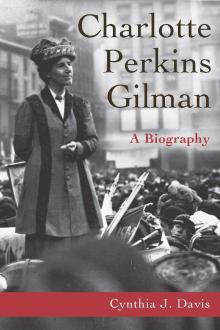
The Anti-Sufragists
Fashionable women in luxurious homes,
With men to feed them, clothe them, pay their bills,
Bow, doff the hat, and fetch the handkerchief;
Hostess or guest; and always so supplied
With graceful deference and courtesy;
Surrounded by their horses, servants, dogs–
These tell us they have all the rights they want.
Successful women who have won their way
Alone, with strength of their unaided arm,
Or helped by friends, or softly climbing up
By the sweet aid of “woman’s influence”;
Successful any way, and caring naught
For any other woman’s unsuccess–
These tell us they have all the rights they want.
Religious women of the feebler sort–
Not the religion of a righteous world,
A free, enlightened, upward-reaching world,
But the religion that considers life
As something to back out of !– whose ideal
Is to renounce, submit, and sacrifice.
Counting on being patted on the head
And given a high chair when they get to heaven–
These tell us they have all the rights they want.
Ignorant women–college bred sometimes,
But ignorant of life’s realities
And principles of righteous government,
And how the privileges they enjoy
Were won with blood and tears by those before–
Those they condemn, whose ways they now oppose;
Saying, “Why not let well enough alone?”
Our world is very pleasant as it is”–
These tell us they have all the rights they want.
And selfish women–pigs in petticoats–
Rich, poor, wise, unwise, top or bottom round,
But all sublimely innocent of thought,
And guiltless of ambition, save the one
Deep, voiceless aspiration–to be fed!
These have no use for rights or duties more.
Duties today are more than they can meet,
And law insures their right to clothes and food–
These tell us they have all the rights they want.
And, more’s the pity, some good women too;
Good, conscientious women with ideas;
Who think–or think they think–that woman’s cause
Is best advanced by letting it alone;
That she somehow is not a human thing,
And not to be helped on by human means,
Just added to humanity–an “L”–
A wing, a branch, an extra, not mankind–
These tell us they have all the rights they want.
And out of these has come a monstrous thing,
A strange, down-sucking whirlpool of disgrace,
Women uniting against womanhood,
And using that great name to hide their sin!
Vain are their words as that old king’s command
Who set his will against the rising tide.
But who shall measure the historic shame
Of these poor traitors–traitors are they all–
To great Democracy and Womanhood!
Charlotte Perkins Gilman
(1860-1935)
The Anti-Sufragists
Suffrage Songs and Verses
• fleursdumal.nl magazine
More in: #Editors Choice Archiv, Archive O-P, Archive O-P, Feminism, The Ideal Woman
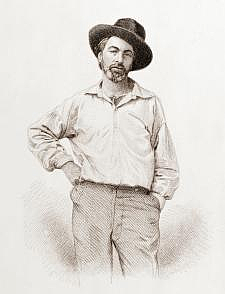
When I Heard the Learn’d Astronomer
When I heard the learn’d astronomer;
When the proofs, the figures, were ranged in columns before me;
When I was shown the charts and the diagrams, to add, divide, and measure them;
When I, sitting, heard the astronomer, where he lectured with much applause in the lecture-room,
How soon, unaccountable, I became tired and sick;
Till rising and gliding out, I wander’d off by myself,
In the mystical moist night-air, and from time to time,
Look’d up in perfect silence at the stars.
Walt Whitman
(1819 – 1892)
Poem: When I Heard the Learn’d Astronomer
• fleursdumal.nl magazine
More in: Archive W-X, Archive W-X, Whitman, Walt

Take all my loves, my love,
yea, take them all
Take all my loves, my love, yea, take them all:
What hast thou then more than thou hadst before?
No love, my love, that thou mayst true love call—
All mine was thine before thou hadst this more.
Then if for my love thou my love receivest,
I cannot blame thee for my love thou usest;
But yet be blamed if thou this self deceivest
By wilful taste of what thyself refusest.
I do forgive thy robb’ry, gentle thief,
Although thou steal thee all my poverty;
And yet love knows it is a greater grief
To bear love’s wrong than hate’s known injury.
Lascivious grace, in whom all ill well shows,
Kill me with spites, yet we must not be foes.
William Shakespeare
(1564 – 1616)
Take all my loves, my love, yea, take them all
Sonnet 40
• fleursdumal.nl magazine
More in: Archive S-T, Archive S-T, Shakespeare, William
Born in New Zealand in 1934, Fleur Adcock spent the war years in England, returning with her family to New Zealand in 1947.
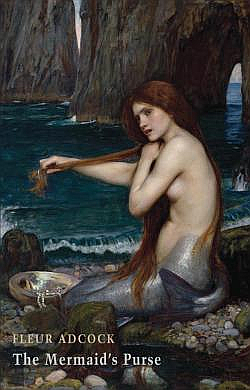 She emigrated to Britain in 1963, working as a librarian in London until 1979. In 1977-78 Fleur Adcock was writer-in-residence at Charlotte Mason College of Education, Ambleside.
She emigrated to Britain in 1963, working as a librarian in London until 1979. In 1977-78 Fleur Adcock was writer-in-residence at Charlotte Mason College of Education, Ambleside.
Fleur Adcock was Northern Arts Literary Fellow in 1979-81, living in Newcastle, becoming a freelance writer after her return to London.
She received an OBE in 1996, and the Queen’s Gold Medal for Poetry in 2006 for Poems 1960-2000 (Bloodaxe Books, 2000).
Fleur Adcock published three pamphlets with Bloodaxe: Below Loughrigg (1979), Hotspur (1986) and Meeting the Comet (1988), as well as her translations of medieval Latin lyrics, The Virgin & the Nightingale (1983).
She also published two translations of Romanian poets with Oxford University Press, Orient Express by Grete Tartler (1989) and Letters from Darkness by Daniela Crasnaru (1994).
All her other collections were published by Oxford University Press until they shut down their poetry list in 1999, after which Bloodaxe published her collected poems Poems 1960-2000 (2000), followed by Dragon Talk (2010), Glass Wings (2013), The Land Ballot (2015) and Hoard (2017).
The Mermaid’s Purse is due from Bloodaxe in 2021. Poems 1960-2000 and Hoard are Poetry Book Society Special Commendations while Glass Wings is a Poetry Book Society Recommendation. In October 2019 Fleur Adcock was presented with the New Zealand Prime Minister’s Award for Literary Achievement in Poetry 2019 by the Rt Hon Jacinda Ardern.
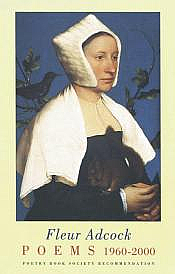 Fleur Adcock writes about men and women, childhood, identity, roots and rootlessness, memory and loss, animals and dreams, as well as our interactions with nature and place. Her poised, ironic poems are remarkable for their wry wit, conversational tone and psychological insight, unmasking the deceptions of love or unravelling family lives.
Fleur Adcock writes about men and women, childhood, identity, roots and rootlessness, memory and loss, animals and dreams, as well as our interactions with nature and place. Her poised, ironic poems are remarkable for their wry wit, conversational tone and psychological insight, unmasking the deceptions of love or unravelling family lives.
Fleur Adcock began writing the poems in this book when she was 82. The two chief settings are New Zealand, with its multi-coloured seas, and Britain, seen in various decades.
There are foreign travels, flirtations, family memories, deaths and conversations with the dead. Katherine Mansfield, incognito, dodges an academic conference; there’s a lesson in water divining as well as a rather unusual Christmas party.
We meet several varieties of small mammal, numerous birds, doomed or otherwise, and some sheep. The book ends with a sequence in memory of her friend, the poet Roy Fisher.
# new poetry
The Mermaid’s Purse
by Fleur Adcock
Publication Date : 25 Feb 2021
Pages: 80
Size: 234 x 156mm
ISBN: 9781780375700
Paperback
£10.99
• fleursdumal.nl magazine
More in: #Modern Poetry Archive, Archive A-B, Archive A-B, Mermaids
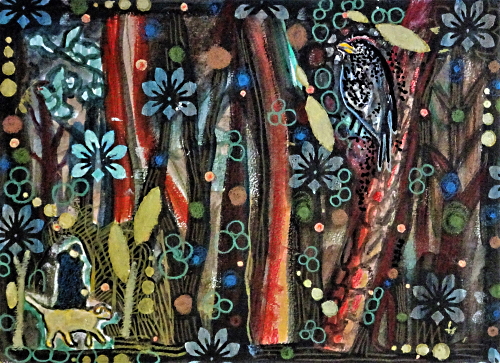
Anne Feddema
Kuierke – Skaad…Ljocht
Wandelingetje – Schaduw… Licht
(Particuliere collectie NL)
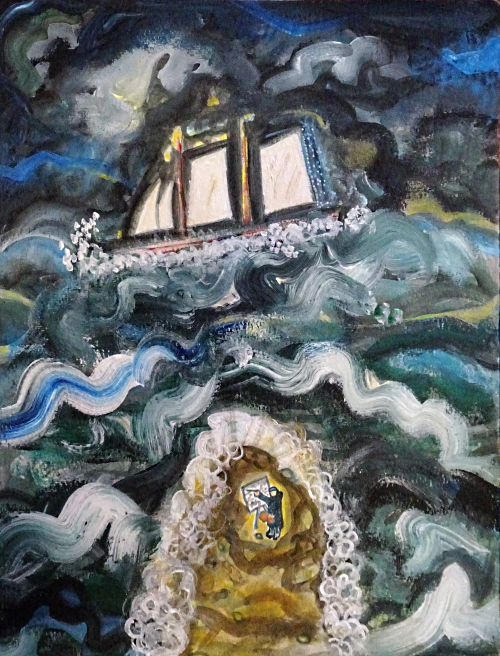
Anne Feddema
Min Waarskilder – Skip
Slecht Weerschilder – Schip
(Particuliere collectie NL)
Anne Feddema (Leeuwarden, 1961) is schrijver, dichter en beeldend kunstenaar. Hij volgde een beeldende opleiding aan het gerenommeerde Ateliers ’63. In 2007 ontving hij voor zijn schilderkunst de Margaretha de Heerprijs en in 2009 de Gysbert Japicxprijs voor Friese literatuur. Zijn beeldend werk is getoond in musea zoals het Groninger Museum, het Fries Museum en Museum Belvédère. Feddema schrijft zowel in het Fries als in het Nederlands. Daarnaast vertaalt hij werk van andere dichters in het Fries. Verder trad Anne Feddema regelmatig op met zijn gedichten, o.a. tijdens het Poetry International-festival in Rotterdam.
©Anne Feddema
• fleursdumal.nl magazine
More in: Anne Feddema, Archive E-F, Archive E-F, Feddema, Anne
![]()
Notitie,
gevonden in een conservatorium
Ik weet wel dat mijn stiltes pijnlijk zijn,
vandaar dat ik niet ieder stuk nog speel.
Een rust in mijn 4’33” wordt niet zelden
ook de doorgewinterd luisteraar te veel.
Paul Bezembinder
Notitie, gevonden in een conservatorium
Gedicht
(Meer over Paul Bezembinder is te vinden op zijn website: www.paulbezembinder.nl)
• fleursdumal.nl magazine
More in: # Music Archive, Archive A-B, Archive A-B, Bezembinder, Paul

I Am Not Yours
I am not yours, not lost in you,
Not lost, although I long to be
Lost as a candle lit at noon,
Lost as a snowflake in the sea.
You love me, and I find you still
A spirit beautiful and bright,
Yet I am I, who long to be
Lost as a light is lost in light.
Oh plunge me deep in love, put out
My senses, leave me deaf and blind,
Swept by the tempest of your love,
A taper in a rushing wind.
Sara Teasdale
(1884-1933)
I Am Not Yours
• fleursdumal.nl magazine
More in: Archive S-T, Archive S-T, Teasdale, Sara
Thank you for reading Fleurs du Mal - magazine for art & literature